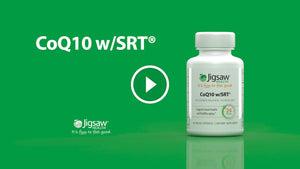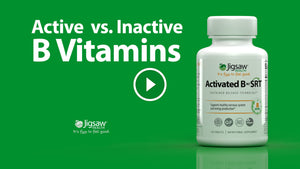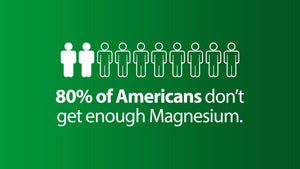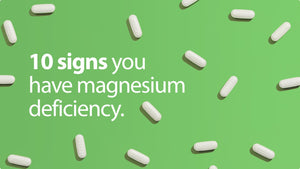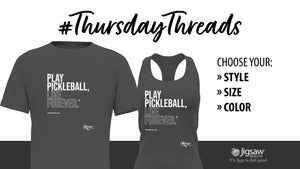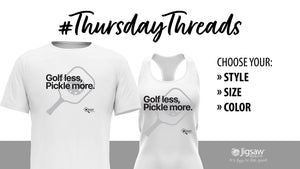By Sarah Clachar, Health Writer
First things first, nothing – not even the highest quality supplements – can replace a good diet. As Dr. Joseph Mercola puts it, it’s like trying to build a boat with rotten wood and using the finest screws to hold it together. Those shiny screws aren’t going to do much good if the rest of the structure is unsound.1
So our first step in getting the right nutrition for our bodies comes in eating right and getting as many nutrients as possible from whole, nourishing foods.
That being said, we still have a hard time getting optimum nutrition from even the best diet... Here are six facts that explain why:
Fact #1: The RDA's Aren't Set For Optimal Health
You see, the RDA's indicate the minumum necessary intake to avoid diseases. They are not the amount required for optimal health.
Integrative medicine crusader, Dr. Hyla Cass, explains that the recommended daily allowance (RDA) most of us use to calibrate our diet isn’t much help. “The RDA is kind of the drop dead limit,” explains Cass. “You’ll get scurvy if you don’t get enough Vitamin C or Ricketts if you don’t get enough Vitamin D. But if you want to have optimum health - to have optimum functioning - the actual requirements are much higher,” points out Cass.2
So the fact that most of us don’t get optimum nutrition even if we do follow the RDA – and that many of us don’t even meet that standard with our daily food intake – is one reason that supplements are so important.
But the problem with food goes even deeper than this... digging right into our very soil.
Fact #2: Undernourished Soil = Undernourished People
All those shiny apples, leafy greens, and blood-red meat may not contain the nutrients you think they do.
Dr. William Albrecht, Ph.D, Professor of Soils and Chairman of the Department of Soils at the University of Missouri College of Agriculture, spent a lot of time looking at the connection between soil health, plant health and human and animal nutrition in the 1940’s and 50’s. His research convinced him of the importance of building healthy, complex soil to produce nutritious foods.
For example, in one study, Albrecht studied three different plots of soybeans. The plot with the largest yield had been fertilized heavily with additional commercial-grade potassium fertilizer. Now while the crop yield was big, the actual nutritional yield was small. The soybeans from this plot had actually about 1/3 the amount of calcium per pound as the soybeans from the smaller yielding plot. And close to ½ the amount of phosphorous.3
And guess what kind of yield most conventional farmers are going for today? If you guessed quantity over quality, you're exactly right!
Organic doesn’t always win out – but in most cases vegetables and fruits raised in more complex soil environments, full of microbial life and rich in minerals, have more nutritional value.
Fact #3: Body Imbalance From Your Meat's Diet
Changes in agriculture have also reduced our access to omega-3 fatty acids. If you go to the Eat Wild website (www.eatwild.com), a website devoted to teaching about the benefits of pasture-raised animal products, you’ll learn that one of the noticeable distinctions between products from grass-fed animals and conventional ones is the high levels of essential fatty acids like omega-3’s found in grass-fed meat.
Our bodies work best when we get omega-6 fatty acids and omega-3’s in a ratio of 3:1 through our diet. Our ancestors easily maintained this ratio. However, with the shift to more grain-based diets and more grain-fed meat, that ratio has shifted to about 20:1 resulting in a wide spectrum of health problems.4 (For more information, see Jigsaw's earlier article: Omega-3 and Omega-6 Fatty Acids: The Essentials).
The other source of omega 3’s – cold-water fish – is also disappearing from our diets, due to possible contamination from our polluted oceans. However, high quality omega-3 supplements made through distillation are free of contaminants like PCB’s and mercury.
Fact #4: Super-Nutrients in Effective Doses
New scientific breakthroughs are adding an additional layer to the argument that a good diet alone may not be enough. You’ve probably heard of resveratrol – the polyphenol found in red grape skins – that has been linked to many health benefits, especially cardiovascular health. The catch to this is that in order to experience the same health benefits the mice did, you’d have to drink between 100-1000 bottles of red wine a day!
Several studies indicate that resveratrol at lower doses may also have some salutary effects; and researchers are still carefully evaluating whether the doses given to mice are safe for human consumption.5 There are many promising nutrients may be therapeutic at doses higher than we can get through ordinary food.
Fact #5: Body Betrayal
But even when we eat the best foods, sometimes our own bodies get in the way. The biggest nutrient most of us are deficient in is Vitamin D, the “sunshine vitamin,” a vitamin that has been linked to preventing a growing list of health problems including osteoporosis, osteoarthritis, depression, and diabetes. Except for fortified foods like milk, it’s hard to get Vitamin D through our diet. Our largest source is our own bodies. We make it when we are exposed to sunlight.
As biochemist Holly Phaneuf Erskine, Ph D., explains, our bodies are designed for life in a tropical climate with very little clothing – the way our ancestors lived. Today, very few of us – even lifeguards in California - get enough sun exposure year-round to make enough Vitamin D. And our body produces even less vitamin D when we have darker pigmentation and as we age.6,7
And Vitamin D is not the only nutrient our own bodies may prevent us from getting in adequate amounts. As Pat Sullivan describes in his book Wellness Piece By Piece, drawing from his personal experience, our digestive system may process and absorb nutrients inadequately. One of the most common examples, in this antibiotic-crazed society, is the depletion of our critical helpers and intimate neighbors – probiotic bacteria – that perform a number of essential duties for our bodies, including manufacturing vitamins A, B, and K.8
In addition to digestive problems brought on by poor probiotic levels in our intestines, low stomach acid and limited enzyme production can also inhibit our ability to digest foods effectively. Genetics, age and activity level all factor into how well our digestive system works. Supplements can help compensate for our own bodies’ limitations in getting the nutritional goods to where we can use them.
Fact #6: Pharmaceutical Sabotage
Prescription drugs set up the final hurdle for many of us in accessing the nutrition we need. If you take prescription drugs, you’re probably painfully aware of many of the potential side effects. What you can’t see as easily is the nutrient depletion, often directly linked to these side effects, that many pharmaceuticals induce.
Dr. Hyla Cass points out in her book Supplement Your Prescription, that pharmaceuticals can prevent your body getting enough of certain nutrients in a number of different ways. Perhaps the most well-publicized example of this is the way that statin drugs deplete our body of Co-enzyme Q10 (CoQ10), an enzyme that is essential for many bodily functions like transforming carbohydrates and fats into energy at the cellular level. Statin drugs work by inhibiting the action of an enzyme that is responsible for cholesterol production. Unfortunately, this same enzyme that statins inhibit is a key enzyme in making CoQ10.9
If you are taking a prescription drug, check out Dr. Cass’ book. It provides a detailed look at specific pharmaceuticals, their effects on the body and recommendations for how to remedy these effects through supplementation.
Finding the Right Supplementation Plan For You
No two people are exactly alike, but we do all have certain essential needs in common. That's why Jigsaw Health put together Jigsaw Complete. It's two packets a day of powerful, simply-organized vitamins, minerals, antioxidants and essential fats that give your body what it needs to help restore itself to optimal health.
Keep in mind that everyone’s biochemistry is different, so no matter how well one system works for one person, it’s important to assess it for your particular body and lifestyle.
Here are two additional tips from Dr. Cass in helping you evaluate what supplementation would work best for you:
- Make it personal: Keep a food journal and document how you feel after eating different foods or taking different supplements. Use this information to evaluate how different nutrients – either in food form or supplements – make you feel.
-
Use testing to give you an even clearer picture. Jigsaw’s founder, Pat Sullivan, identified many pieces of his regimen through tests. In Dr. Cass' book, Eight Weeks to Vibrant Health
, she outlines the tests she uses with her patients to help identify imbalances and provides information about where to get the testing done if your health care provider does not offer this service.10
To your health and wellness!
Jigsaw Complete™ is a convenient and effective way to make sure your nutritional needs are covered every day.
Cited Sources:
- Dr. Joseph Mercola - www.Mercola.com
- Personal Interview with Dr. Hyla Cass 12/05/07
- Albrecht, William A. Soil Reaction (pH) and Balanced Plant Nutrition. Paper prepared for an illustrated lecture in Alamosa, Colorado, August 31, 1967; viewed at http://www.soilandhealth.org/01aglibrary/010143albpap/010143idx.html on 5/30/08
- Personal Interview Dr. Laurie Steelsmith, ND 12/14/07
-
Mayo Clinic Staff; Red Wine and Resveratrol: Good For Your Heart? March 9, 2007. Viewed at
http://www.mayoclinic.com/health/red-wine/HB00089 5/30/08 - Personal Interview Dr. Holly Phaneuf Erskine, Ph D 12/14/07
- Chen TC et al. Factors that influence the cutaneous synthesis and dietary sources of vitamin D. Archives of Biochemistry and Biophysics. 2007 April 15; 460(2): 213-7
- Hyla Cass, MD. Supplement Your Prescription; What Your Doctor Doesn’t Know About Nutrition. Laguna Beach, California: Basic Health Publications, Inc., 2007. p.33.
- ibid. pp. 66-68.
- Hyla Cass, MD. 8 Weeks to Vibrant Health; A woman’s Take-Charge Program to Correct Imbalances, Reclaim Energy, and Restore Well-Being. New York, NY: McGraw-Hill. 2005. pp. 5-9, pp. 21-37.








